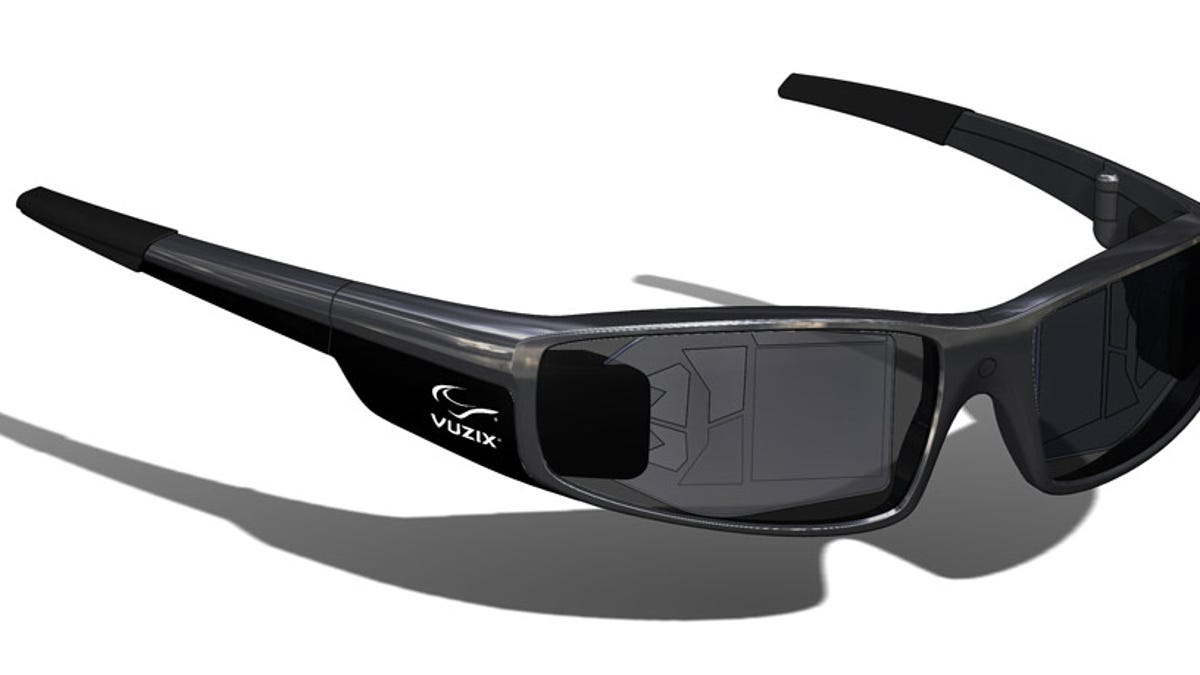Vuzix's video glasses minimize the dork factor
The video eyewear company says it'll start selling augmented reality glasses this fall that are slim enough to look normal.

Sure, the idea of augmented reality has some appeal.
Overlaid on your view of the real world, your Net-connected glasses show navigation instructions, prompt you with the name of the person you're talking to, and run an ad-blocker app to turn billboards into wallpaper with soothing nature photos. And with one display for each eye, you see in 3D, so you can turn the outisde world into an immersive videogame.
The only problem is that you look like a total dork walking around with bulky electronic devices stuck to your face.
Vuzix, which sells such products, says it's got the problem licked with a new technology developed on its own and licensed from Nokia that it'll unveil at CES. Its approach, which Vuzix calls Smart glasses, uses waveguides that channel light from a display engine to a 1.4mm-thick lens mounted in front of the users' eyes.
The lens captures what's in front of the viewer, then mixes the computer and real-world imagery. It works in anything from night to broad daylight, and can be used to record what a person sees, too.
"And, all this technology neatly fits into the temples & lenses of a conventional pair of eyewear!" the company gushes. It's not clear if it'll fit into your budget, of course, but Vuzix hopes to sell the glasses for consumers as well as for commercial and industrial uses.
These latter two markets will be the first Vuzix targets, starting in the fall of 2012--"from standalone solutions for night vision and first-responder use to fully Internet-connected and geospatially aware devices for amazing augmented reality applications," Vuzix said.

